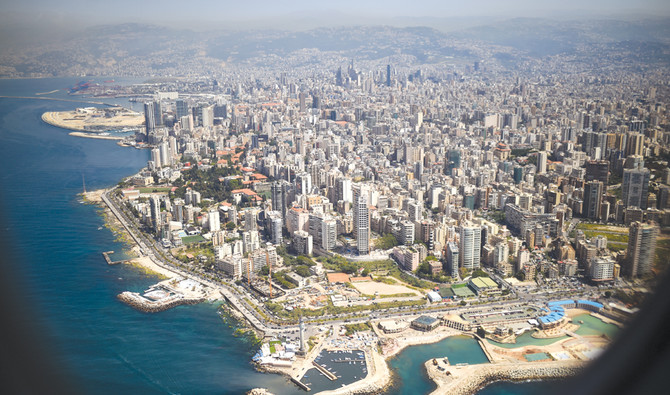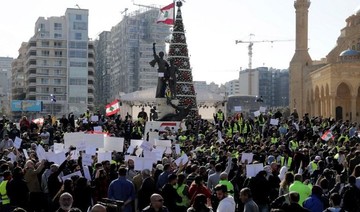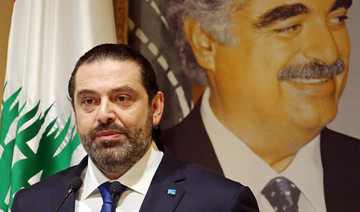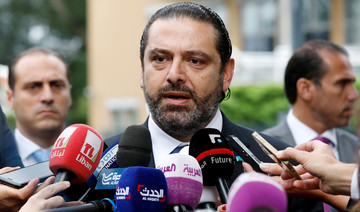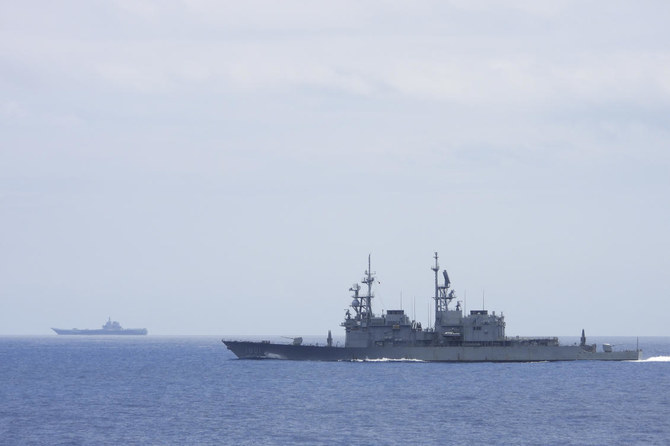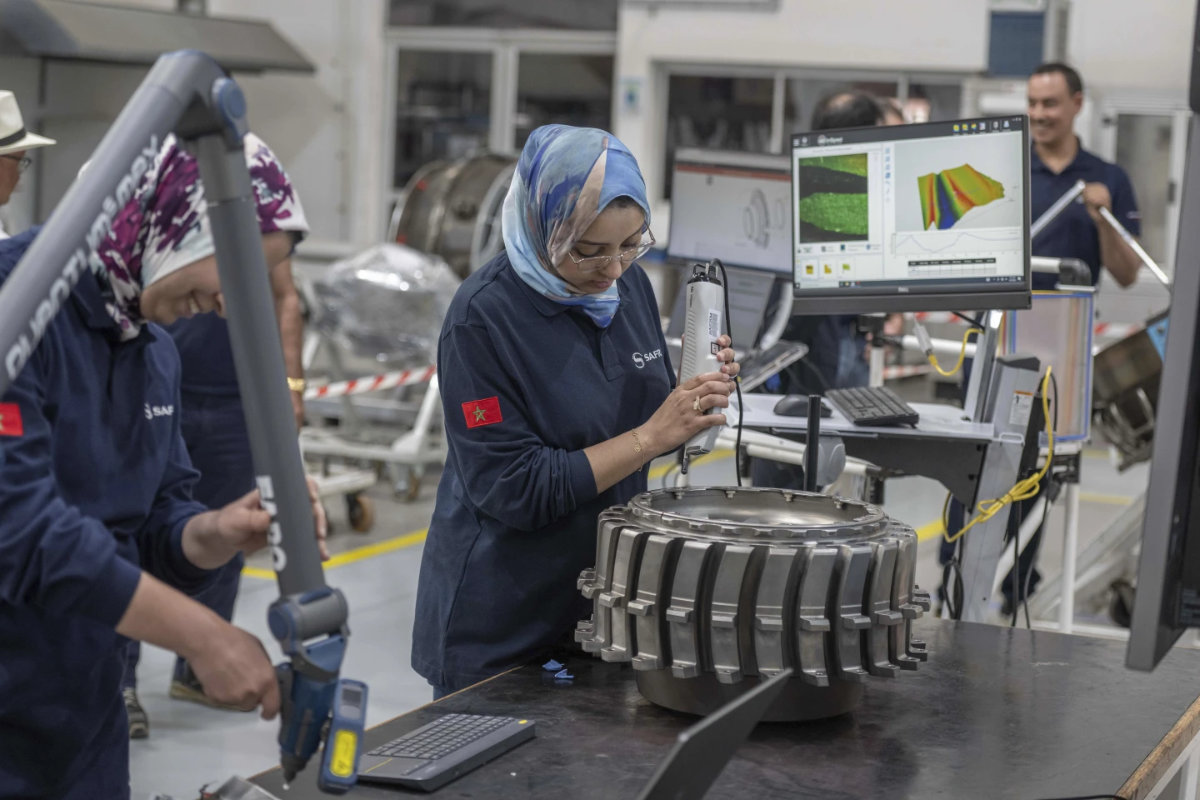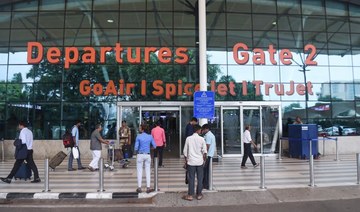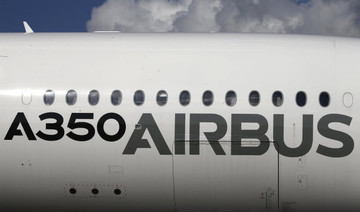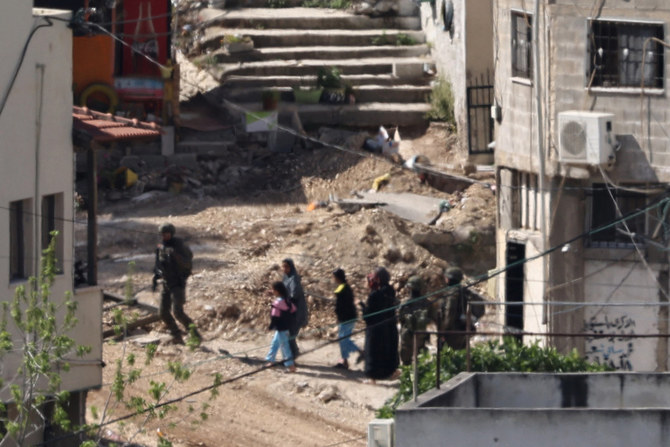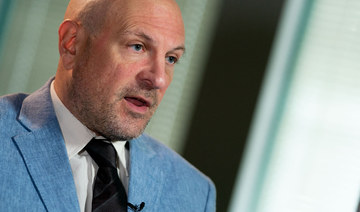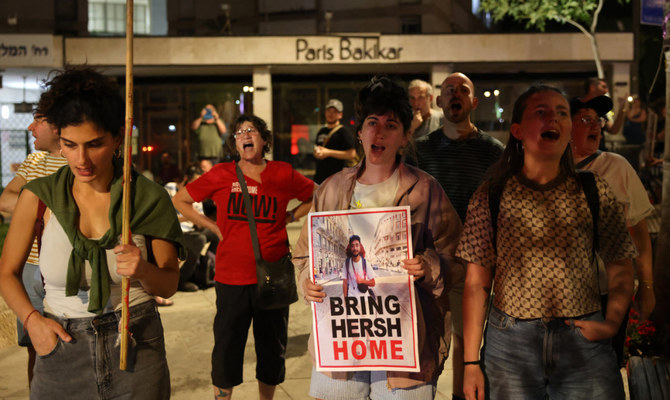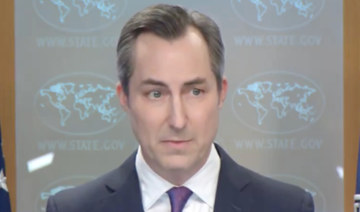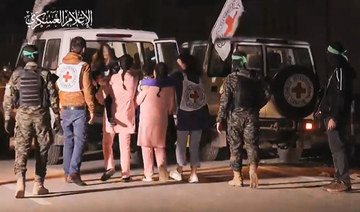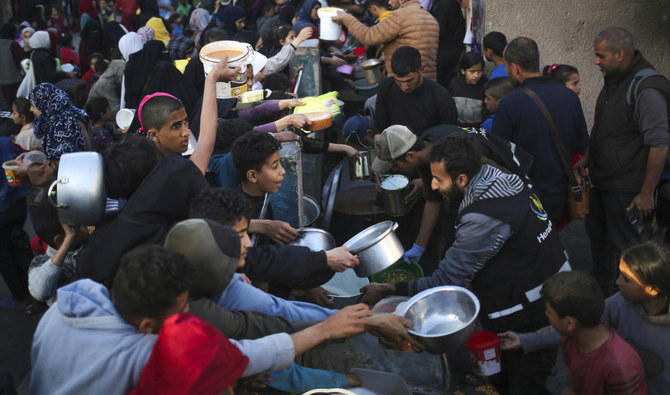DUBAI: Lebanon must eradicate corruption and improve transparency to address its economic problems, leading economists have told Arab News in the wake of a damning report by the American consulting firm McKinsey.
The 1,200-page report, released by the country’s Ministry of Economy last Wednesday, warns of a crippling political stalemate in government and says the country is facing economic collapse.
One of the damaging figures reveals that Lebanon’s residents spend 50 percent more time than needed on congested roads, only 15 percent of which are in good condition. It also discloses that Lebanon’s infrastructure ranks 113th out of 137 countries.
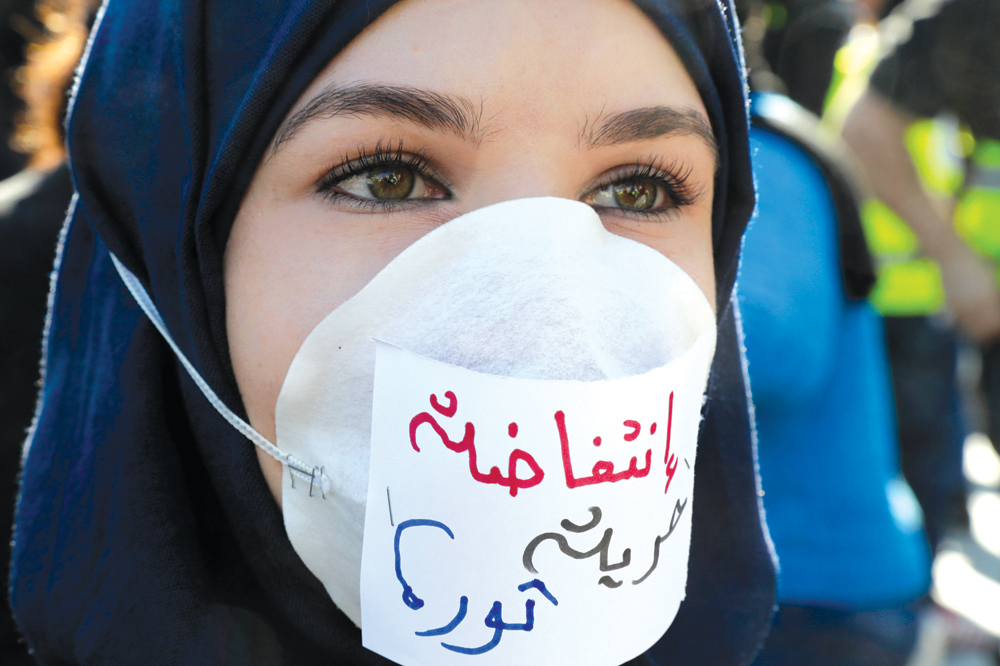
A woman wears a mask reading “happy uprising” as anti-government protesters demonstrate in central Beirut. (AFP)
“These numbers come from a variety of sources like the World Bank and others, so these have been assessed by various international parties,” Dr. Nasser Saidi, former chief economist and head of external relations at the Dubai International Financial Center, told Arab News.
“What’s more important is the cost of this in terms of productivity and income, because when you spend time on the road you aren’t producing anything, so congestion costs are very large in terms of both loss of business opportunities, lost income and lost productivity.”
Lebanon was found to have the world’s fourth-worst quality of electricity behind Haiti, Nigeria and Yemen. “Electricity in Lebanon is just more expensive, but everyone has 24-hour electricity if they can afford it,” Nadim Shehadi, an associate fellow at Chatham House, told Arab News.
“If you measure electricity supply by state provision then it’s the worst in the world, but if you measure it by what’s available to people, it’s not so bad. There are sometimes indicators that have to take into account the fact that Lebanon is a mixture of private sector, illegal activity and government sector, and sometimes illegal activity compensates for the government sector.”
He said the government is failing but will not change the law to allow people to supply electricity. “So the only alternative is illegality, which supplements the government,” he said. “Illegality is not necessarily totally negative (in this case).”
Lebanon’s perceived corruption was shown to have increased by 26 points since 2012 to 146 out of 180.
“In terms of governance, it has been deteriorating over the past five to six years on a continuous basis,” Saidi said. “It’s corruption, bribery and nepotism. In all reports on transparency and corruption, Lebanon is unfortunately one of the most corrupt (places) in the world, and the importance of it is not only that we want to be able to fight corruption, but that it has become a cancer and it is so pervasive.”
He emphasized the issue as it is a major contributor to public finance and the budget deficit. “Corruption is directly related to government procurement and government contracts as well as government revenue,” he said. “So there is widespread tax evasion, and corruption is at the core of Lebanon’s large budget deficit, which was close to 11 percent in 2018 and likely to be the same or higher in 2019... The economic and fiscal impacts are extremely important.”
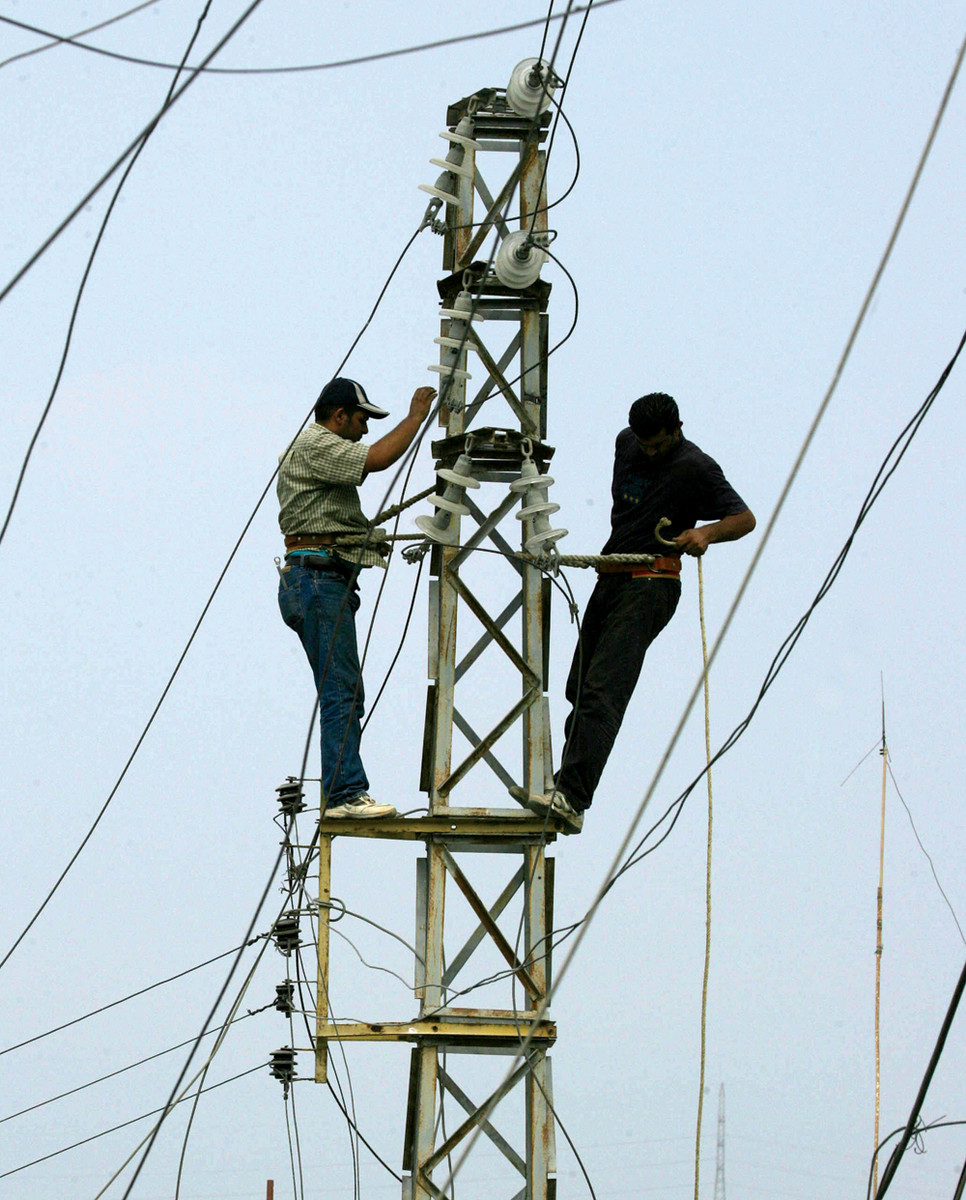
Lebanese workers fix electricty wires in the southern village of Srifa. (AFP)
The report further outlined that the country’s gross domestic product (GDP) per capita today is only 30 percent higher than it was in 1980, which was five years into the Lebanese civil war. Shehadi said prior to 1975, Lebanon’s standard of living and GDP per capita were on par with some European countries such as Spain, Ireland and Portugal.
“If you want to measure the real damage that the civil war and the (Israeli) occupation have done to the country, it’s where Lebanon stands vis-a-vis countries that were equivalent to it before the war,” he added. “So it has regressed a lot by that measure.” Saidi said the poor quality of statistics in the country needs to be improved as the central statistics office lacks resources and figures on key areas including GDP and investment.
He said the lack of field productivity growth and investment means it is unsurprising that there has not been much of an increase in per capita income or real GDP.
The McKinsey report highlighted the country’s education system, deeming it to be of low quality and in decline. It said many skills are not being taught to suit labor force needs, partially because the curriculum has not been upgraded since 1997. Experts, however, said this is only the case for public sector schools and universities.
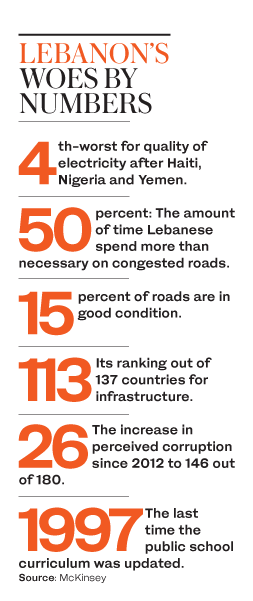 “The picture is diverse and there’s a big gap between public and private education,” Saidi said. “The major private sector universities are St. Joseph, the AUB and the LAU, which are able to deliver competitive quality education. The evidence for that is that our graduates are able to go to top-notch universities internationally.” But the problem is that it is mostly elites who can afford high-quality education, leaving behind most of the population, including Syrian refugees, he said.
“The picture is diverse and there’s a big gap between public and private education,” Saidi said. “The major private sector universities are St. Joseph, the AUB and the LAU, which are able to deliver competitive quality education. The evidence for that is that our graduates are able to go to top-notch universities internationally.” But the problem is that it is mostly elites who can afford high-quality education, leaving behind most of the population, including Syrian refugees, he said.
He pointed the finger at the Arab world as a whole. “You need to think of two things: Education for employment, which should give you skills to be able to get jobs, and digital education for digital employment, because economies on a global basis and in the Arab world are increasingly going to have to move to become digital.”
Low productivity growth and high poverty rates were said to increasingly prevent Lebanon’s younger generations from being endowed with the education required to participate in the modern economy.
Changing the official curriculum of public schools was also perceived as a difficult step, as is “anything to do with the government,” Shehadi said. “It’s very slow, inefficient and doesn’t work. That’s why 70 percent of education in Lebanon is private or non-governmental.” He spoke of Lebanon as an exception globally in that it never provided 20th-century state services. As such, and with global reliance on government on the decline, it could be seen as “more on the right track” and an easier issue to resolve.
In terms of the country’s diaspora and its $6.9 billion in remittances sent back to Lebanon, the report said they are not largely channelled into productive areas. Although Shehadi blames it on high interest rates in the country, putting Lebanese living abroad off investing in other sectors, Saidi said such money is financing the government’s budget deficit.
“There’s very little public investment, and all remittances and the capital coming in from the diaspora go into bank deposits, treasury bills and to finance the budget deficit,” Saidi said. “We have one of the highest levels of debt to GDP in the world, in excess of over 158 percent, which makes it the third most indebted country in the world after Japan and Greece.”
He attributed the problem to very little public investment, which trickled down to poor infrastructure performance. “It’s all going to finance wages, pensions and interests on public debt,” he added, calling it a resource curse due to the government’s dependency on it. “They’re happy to pay high rates just to attract them. Had we not had them, they would’ve had to adjust on their own and had fiscal reform.”
The main issues at hand, he believes, are fiscal reform and corruption, cutting down the budget deficit and the level of public debt.
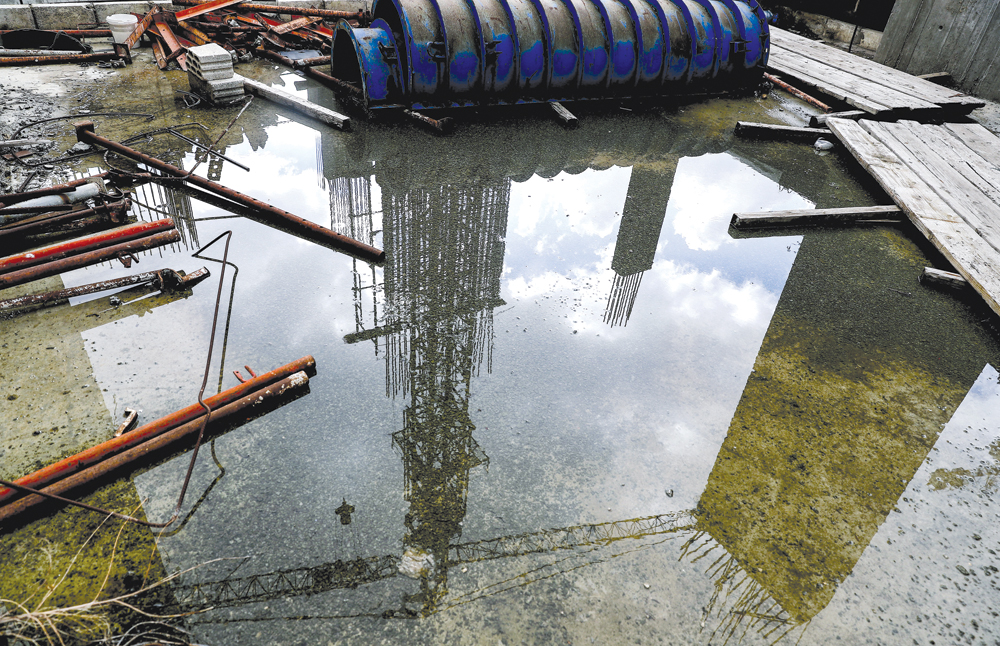
A reflection of unfinished cement columns at a halted construction site in Beirut. (AFP)
Shehadi said Lebanon should come up with its own vision and policies through dialogue between the private sector and the government. “It should be a comprehensive process,” he said. “The government of Lebanon is paralyzed for political reasons, and there are very good political reasons for its paralysis. It’s dysfunctional, and the main blockage is political.”
Dr. Albadr Al-Shateri, politics professor at the National Defence College in Abu Dhabi, said the economy of any country is closely aligned with its politics. “Lebanon’s politics is marred by a high level of instability due to its political system, which teeters over volatile sectarian politics,” he told Arab News. “The combination of weak, more like dysfunctional, government and fragmented civil society hampers public policy-making.” He said no matter how well-informed policy recommendations are from consultancies, the lack of political will to implement these recommendations will defy any expertise.
“Lebanon has always been between a rock and a hard place geopolitically. Today, Lebanon carries the burden of the region: A raging civil war to its east (Syria), a trigger-happy state to its south (Israel), huge numbers of refugees from current and past wars, and a rampant cold war between different camps in the region. The country has its work cut out for it: It can’t form a government, much less produce public policy to rectify economic woes.”
But the economic potential of Lebanon is great, Al-Shateri said, with its arable land, water resources, and a highly educated, industrious and entrepreneurial population. “However, without political stability and a rules-based business environment, Lebanon’s economic transformation will remain a will-o-the-wisp.”
Karen Young, a resident scholar at the American Enterprise Institute, said the report reveals a number of weaknesses, in government effectiveness and in vulnerabilities to other regional economies, especially in the Gulf. “It’s a useful outside view of Lebanon’s current economic situation,” she told Arab News. “What policy path the government takes to put this information to use is a political process, also fraught.”
She said there is a difference between the presentation of economic data and the consultancy prescription for growth. “The government can take the economic analysis and find different policies to pursue to confront them. And some of the policy prescriptions are probably unrealistic in the Lebanese political context, but that’s what you pay consultants for: An outside perspective that’s detached from political constraints. It’s a re-imagining of what could be in Lebanon... The report is a wake-up call for consensus-building, but it also allows an outsider to break the bad news.”


